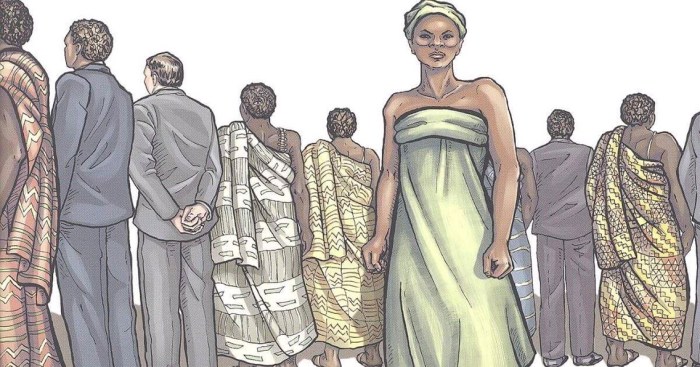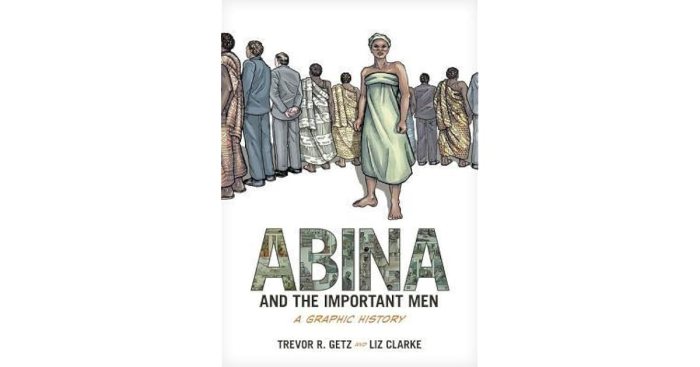Abina and the important men summary – The novel “Abina and the Important Men” is a poignant and insightful exploration of the complexities of gender, race, and class in colonial Africa. Abina, the novel’s protagonist, emerges as a powerful and resilient female character who challenges traditional gender roles and confronts the oppressive forces that shape her life.
Through its rich symbolism and nuanced characterization, the novel offers a profound critique of colonialism and its lasting impact on African society. It invites readers to engage with issues of inequality, identity, and the resilience of the human spirit.
Abina’s Character: Abina And The Important Men Summary

Abina, the protagonist of the novel, is a strong and independent female character who defies the patriarchal norms of her society. She is intelligent, resourceful, and determined to forge her own path in life.
Abina’s struggles and triumphs highlight the challenges faced by women in a male-dominated world. She is forced to navigate a society that undervalues her voice and agency. Despite these obstacles, she remains resilient and refuses to be silenced.
Abina’s character challenges traditional gender roles. She is not content with being confined to the domestic sphere. Instead, she pursues her education, career, and personal aspirations.
The Important Men
The novel features several “important men” who influence Abina’s life in various ways. These men represent the patriarchal power structures that shape her experiences.
One of the most significant figures is Chief Idigo, the village chief who embodies traditional authority. Idigo views Abina as a threat to his power and tries to suppress her ambitions.
Another important man is Mr. Brown, a British colonial officer who represents the oppressive force of colonialism. Brown’s actions highlight the racial and class inequalities that exist in Abina’s society.
Social Commentary
The novel offers a critique of colonialism and its impact on African society. It exposes the ways in which colonialism disrupts traditional ways of life and creates social inequalities.
The novel also explores issues of race, class, and gender inequality. It shows how these systems of oppression intersect and shape the lives of individuals.
The novel’s relevance to contemporary social issues is evident in its exploration of themes such as gender inequality, racial discrimination, and the struggle for self-determination.
Literary Techniques
The novel employs various literary techniques to enhance its meaning and impact. Symbolism is used to represent the characters and themes of the novel.
For example, the river represents the journey of life and the obstacles that must be overcome. Allegory is also used to create a deeper level of meaning. The novel can be read as an allegory for the struggle for independence and self-determination.
Foreshadowing is used to create suspense and build towards the novel’s climax. The author uses subtle hints and clues to suggest events that will occur later in the story.
Critical Reception, Abina and the important men summary
The novel has received critical acclaim for its powerful storytelling, social commentary, and literary techniques. It has been praised for its ability to capture the complexities of African society and its exploration of universal themes.
The novel has been widely studied in literary scholarship and has had a significant impact on cultural discourse. It has been translated into multiple languages and adapted for stage and screen.
The novel continues to be reinterpreted and analyzed, reflecting its enduring relevance and the ongoing debates about gender, race, and colonialism.
FAQ Compilation
What is the significance of Abina’s character?
Abina is a strong and independent female character who challenges traditional gender roles and confronts the oppressive forces that shape her life. She represents the resilience and strength of women in the face of adversity.
How does the novel critique colonialism?
The novel critiques colonialism through its exploration of the power dynamics between Abina and the “important men” who represent the colonial establishment. It exposes the ways in which colonialism devalues and exploits African people.
